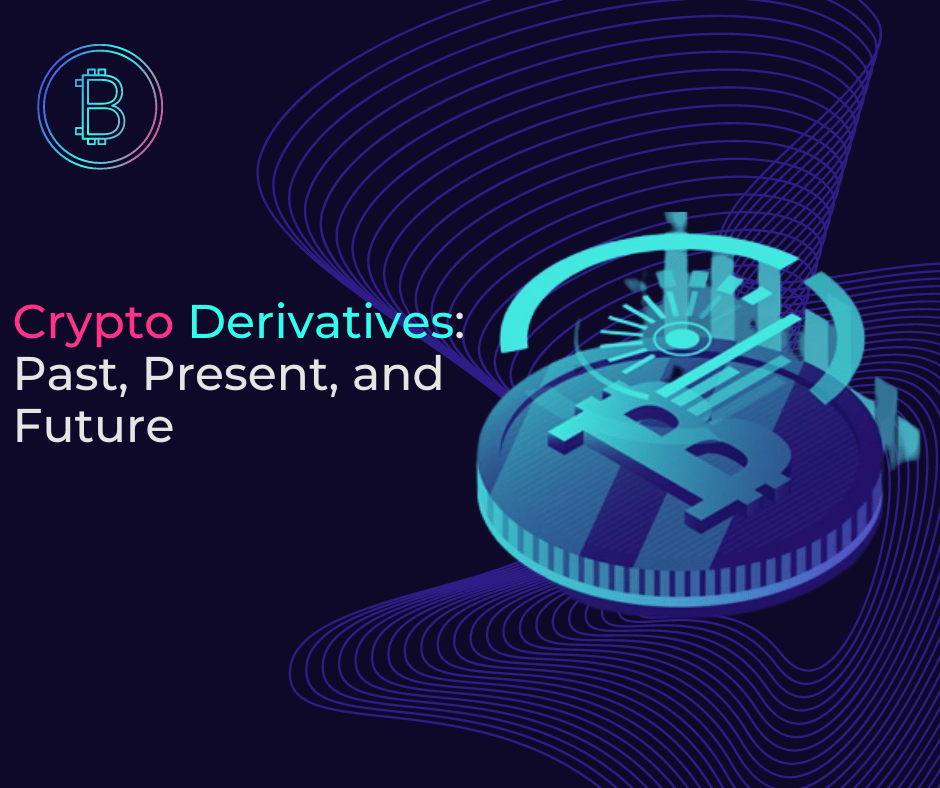If you’ve spent some sizable amount of time in the cryptocurrency industry over the past few years, there’s a good chance you’ve stumbled upon the term “Cryptocurrency Exchange” even more plausible, you’ve probably used one in the past to facilitate trades, exchange fiat for crypto, or use it as an easy access wallet for your funds (although we wouldn’t suggest the latter for some type of exchanges).
If you’ve been very particular in trading, or perhaps stocking up cryptocurrencies lately, you may have used these exchanges as hubs for purchase and trading. And if so, it would be safe to say that you’ve grown quite the preference for one or the other.
But for others who can’t simply decide, what would really work for them? Is the centralized exchange their perfect companion, or will decentralized exchange be their best buddy?
And what of the Hybrid Exchanges like GRVT.io who have made grounds on the crypto world recently, thanks to their innovative approach at exchanges and trading?
The amount of choices for exchanges could certainly make everyone’s heads spin. But don’t worry, as we’ll give you all the buzz you need to find out which type of exchange works best for you!
Without further ado, let’s hop in!
Centralized Exchange vs Decentralized Exchange: The Decade Old Debate
These two types of exchanges: Centralized and Decentralized, have been pitting for the number one spot since their eras of proliferation. With each offering something unique to the table, they gained massive popularity and a cult following of die-hard traders who swear by their favorite type of exchange, and although they are night and day in difference, they still share some similarities, how about we get into that?
How Similar Are These Two?
Think of centralized and decentralized exchanges as two sides of the proverbial coin. They may have different approaches at providing prime trading experience to their users, but at its core, they all offer these same benefits!
Trading, Swapping, and Investing
These two exchanges have perfected the art of providing customers with the capabilities to trade, invest, and swap cryptocurrencies within their hubs. Trading in particular, has been the go-to combo of these exchanges, as well as allowing cryptocurrency users to buy whichever token they want willy-nilly, or put them up for sale!
Swapping is an old concept in the crypto world, but the capabilities to support this act has only been made available quite recently, and in exchanges too for that matter.
All in all, if you’re looking for an exchange, there’s a good chance that you’re doing so because you wanted to fulfill one or more of these things.
DeFi Capabilities
Thanks to the recent boom of Decentralized Finance (DeFi), exchanges are forced to undergo some changes that would make DeFi earning features available for users, straight from the platform! Features like staking and yield farming as well as token investment (with impermanent loss barriers) were once standalone concepts that had nothing to do with any type of exchange in the market, but as time passed by, these features were absorbed by exchanges altogether, with Decentralized Exchange leading this massive system upheaval.
Now, having staking, yield farming, and other DeFi earning features on a centralized or decentralized exchange is nothing to applaud for anymore. After all, it’s just fair that they offer more, right?
Susceptibility to Liquidity Risks
With massive benefits come drawbacks that you just can’t scoff at. One of which is their susceptibility to risks in liquidity. At the end of the day, these exchanges are businesses with employees to pay, a treasury/liquidity to fill, and pockets to line. If an exchange’s liquidity is compromised, not only will this stop users from doing their normal tasks, it will literally bar them from even withdrawing their money from the platform.
This usually happens with centralized exchanges since they are more susceptible to this risk, evidenced by the fact that last year alone, centralized exchanges were placed at the hot seat of all cryptocurrency dramas and scandals, (looking at you FTX) but at the end of the day decentralized exchanges are just as susceptible to this.
With their similarities out of the way, let’s talk about their differences and selling points now!
How Different Are They?
These two exchanges have night and day differences in them. From the way they are managed to the very foundation that built them, these are but some of their striking comparisons!
Impermanent Losses
A big downside of investing and trading on Decentralized Exchanges is the existence of Impermanent Losses, which is the act itself of incurring losses through holding coins that degrade in value faster than the market standard.
Since decentralized exchanges offer trade spots for virtually every cryptocurrency in the market, they are more susceptible to these kinds of drawbacks than centralized exchanges who screen their tokens first before putting up for trades.
Coins offered
On the same note, a striking difference between centralized exchanges and decentralized ones is the amount, as well as the integrity of tokens that they offer.
For the most part, centralized exchanges offer a fewer array of token options than their decentralized counterparts. This is because they filter tokens/projects in the market, and choose those that offer a better chance at surviving in the current phase of the market. If it doesn’t stand much chance, you’d never find it in a CEX like Binance.
On the other hand, Decentralized Exchanges are a bustling night market for every coin on the planet. You name it, and they probably have it! This gives users the freedom to invest and trade on whatever cryptocurrency they like, but at the same time, this also puts them at risk of pushing for a coin with superficial valuation, which could then lead to impermanent losses once the hype has mellowed down.
Regulatory Debates
One of the biggest conversations to be had in this “Decentralized Exchange vs. Centralized Exchange” discussion revolves around the topic ofcontrol.
For some people, they aren’t too keen on getting their information dug and saved on a central server, even if that’s for profile creation and account safety, which then leads them to choose decentralized exchanges that do not require users to undergo KYC.
On the other hand, there are users who value the security of their trading experience more than anything, which leads them to use Centralized Exchanges in the process.
Another side of this discussion is the manner at which customer funds are stored. In centralized exchanges, funds are stored in a central treasury, which makes them susceptible to attacks from hackers and crackers, running away with millions of dollars every single time they make a move. While this is something that’s concerning by a million degrees, the fact that you entrust your money to a centralized exchange also makes them liable for its loss through unforeseen circumstances, kind of like an insurance so to speak.
This doesn’t happen with Decentralized Exchanges, as every wallet in there’s self-custodial! Which means they don’t hold your funds for you, and are not responsible either for anything that happens to it. Which is also why you’d never find news about decentralized exchanges getting hacked, or customer funds getting stolen from decentralized exchanges!
Processing Time
Lastly, it’s processing time.
Centralized Exchanges are the kings in this. They harbor their own network and make it their domain. Thus, you’d find that transactions you facilitate in CEXs take little to no time to resolve, with less fees for that matter too!
On the other hand, we have the slow and steady decentralized exchanges which take an hour or more on the regular, which is a massive red flag, especially for investors who are on the go.
Hybrid Exchanges, What Are They?
Amidst this discussion between DEXs and CEXs, we got ourselves a new contender that could change the way we look at Exchanges!
Promising to offer the best traits of Decentralized Exchanges and Centralized ones in a single platform, the notion of such a platform brings massively-amazing implications for every investor on the market, whether you’re someone who values your privacy more, or the safety of your trading journey!
Introducing Hybrid Exchanges!
GRVT.io, A Key Player In The HEX Game
Hybrid Exchanges are new players in the industry. Only ever seeing massive notice this year. But that doesn’t mean they can’t go toe-to-toe with the industry giants!
For one, GRVT.io, which is widely considered by many as a key player in the hybrid exchange technology, promises to provide all the best things you loved about these exchanges in a single fun-sized package!
Thanks to their patented zk-powered volition technology, the custodial and trading functions are separated from each other, allowing people to trade without the downsides present in decentralized exchanges, and keep their funds within the exchange on-the-go, without the worries of losing it in bank runs and hackings!
There’s more to the GRVT.io discussion that warrants its own separate read, but these are just some of its flagship features that makes Hybrid Exchanges the go-to for everyone who wants to have their cake and eat it too!
Final Thoughts
Even in the Exchange World, you’d find innovation and changes taking place, and although it’s not as fast as anyone would’ve hoped, judging by the fact that it took years for visionaries in the industry to actually create an effective Hybrid Exchange, it’s still a massive upgrade that will change the lives of many a trader in the future!
So to close off the decentralized vs. centralized exchange debate, let me just ask you this:
Why not choose a hybrid exchange like GRVT.io instead? It’s safe, it’s secure, it’s easy to use, it has everything you need!










